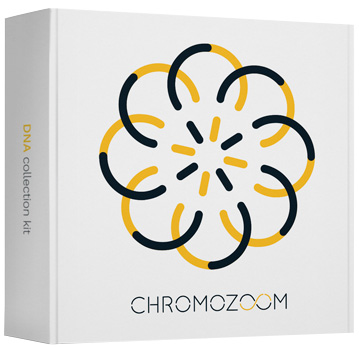Skin Aging and factors associated with wrinkle formation
The skin is constantly exposed to external and internal factors, which affect its appearance, elasticity, and structure. These factors finally cause structural and physiological changes in each skin layer, which manifest themselves in the appearance of the skin.Chronological aging associated with increasing age is affected by genetic factors and is primarily connected with wrinkle formation, loss of volume, and decreased the elasticity of the skin. External skin aging is affected by a number of factors. The major role is played by UV radiation effects, causing solar elastosis, degradation of the extracellular matrix (ECM), and wrinkle formation. Chronic skin aging due to UV radiation effects are referred to as "photoaging".
The dermis of the skin contains proteins of the extracellular matrix, such as collagen, elastin and proteoglycans, which provide the skin with strength and elasticity. Skin aging is associated with skin cell aging ( keratinocytes and fibroblasts), ECM changes and extinction, and decreased synthesis and accelerated the disintegration of collagen fibers in the skin.
Collagen
Collagen is a protein, which is the basic building material of the connective tissues. Collagen has a number of types, the most important being types I, II, III, IV, and V collagen. The most widespread is type I, which represents 90% of the collagen in organisms, is present in the skin, tendons, bones, and teeth. Collagen influences the appearance of our skin, hair quality, and nails. With advancing age, collagen production is decreased, and its deficiency manifests itself by skin aging.
Solar (UV) radiation
In particular, solar (UV) radiation induces the production of reactive oxygen species (ROS) and DNA damage. These changes result in an increased production of metalloproteinases (MMPs) and decreased collagen production in keratinocytes and fibroblasts, and the changes manifest themselves in the overall appearance of the skin. In addition to UV radiation, smoking, skin exposure to polluted air, the action of toxins, and lack of sleep contribute to skin aging. Like UV radiation, these factors cause the production of oxygen radicals and increase MMP expression leading to ECM degradation and the acceleration of the skin aging process. The degradation of collagen alone is crucial in the process of skin aging and wrinkle formation.From the age of 25, the collagen levels drop by 1% every year, and thus the skin structure gradually becomes weaker with a more pronounced tendency to wrinkle formation as age advances. Over time, the skin loses its elasticity and wrinkles deepen. The production of hyaluronic acid is decreased, the skin cells less efficiently bind water, and the skin is thus insufficiently hydrated. The skin becomes thinner and is more susceptible to damage.
Thorough and proper skin care may help to maintain your skin’s health. Regular cleaning is the first step to effective skin care. Cleaning helps to remove impurities, skin sebum, and make-up, and to better absorb the active ingredients in the subsequently applied cosmetic products. Skin cleansing should be done in the morning and in the evening. The subsequent application of appropriate cosmetic products based on your specific skin type and skin condition helps to protect the facial complexion from external effects and restore the skin’s healthy appearance.
The clinical features of skin aging are individual to each individual due to different genetic predispositions and different lifestyles.
Extracellular Matrix (ECM)
An extracellular matrix (ECM) fills the intercellular spaces between cells of different tissues. The extracellular matrix consists namely of collagen, proteoglycans and glycoproteins (laminin, fibronectin). Collagens allow the mechanical strength of tissues, proteoglycans ensure their elasticity, and adhesive components of the extracellular matrix, such as laminin and fibronectin, determine the specificity of cell anchoring in the tissue. Therefore, the ECM provides elasticity and the total volume of most tissues. The extracellular matrix is produced by fibroblasts (basic cells of the connective tissue).
